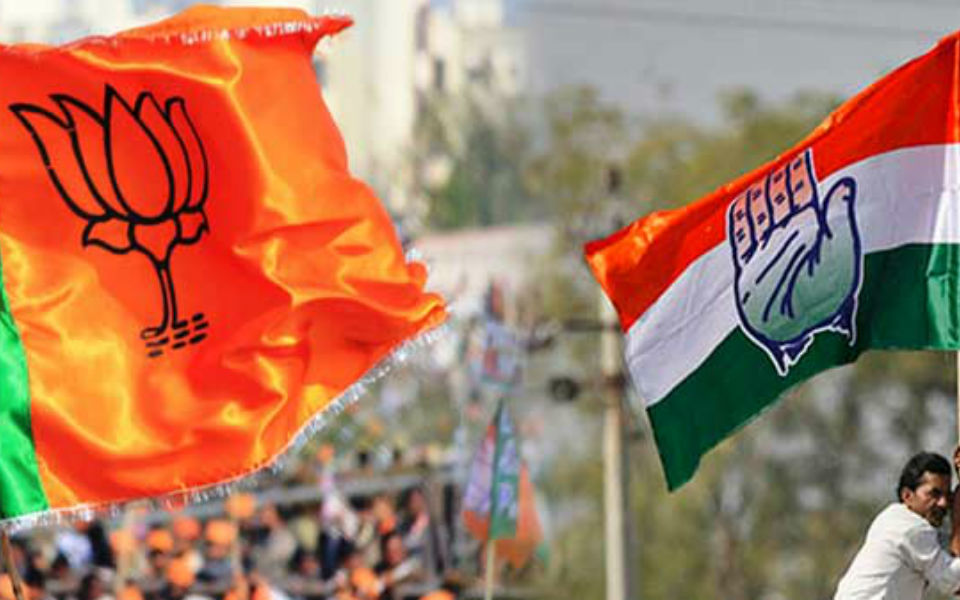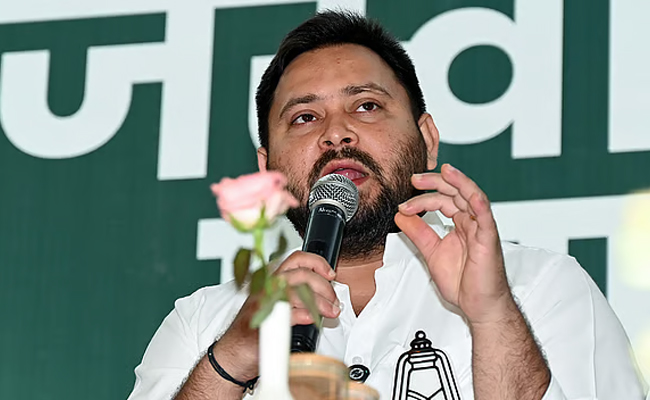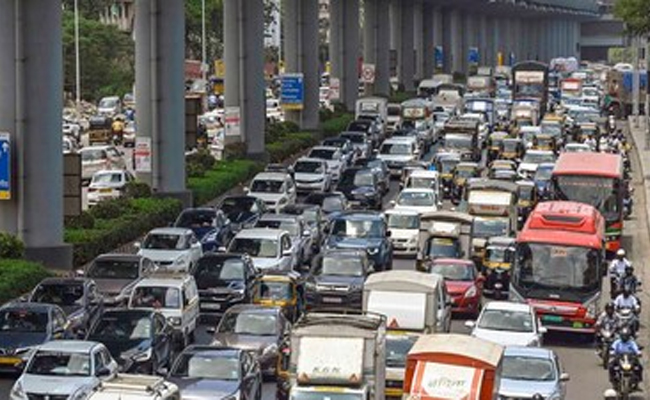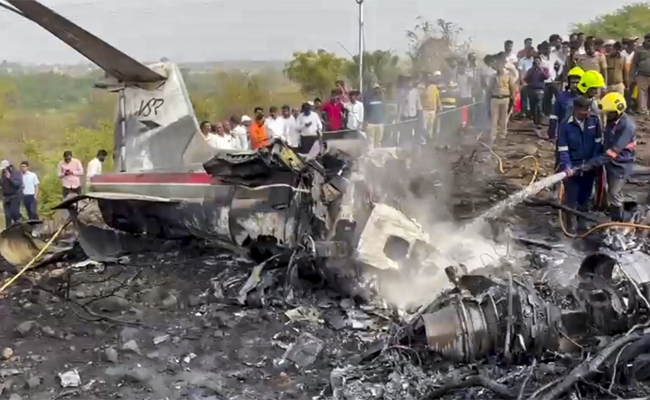Bengaluru, May 11:The ruling Congress and the opposition BJP have locked horns to outsmart each other in the Karnataka assembly election on Saturday, with the Janata Dal-Secular (JD-S) making the contest triangular.
As the only assembly poll being held in the peak summer, with temperatures soaring, the battle-royal at the hustings has the nation glued to the southern state where the stakes are high for both the national parties whose prospects the JD-S can make or mar as a kingmaker or spoiler in a fractured verdict.
"If the Congress is desperate to retain power defying anti-incumbency, the BJP is impatient to return to power in south India after losing badly 5 years ago, while the JD-S wages a lone battle to play a key role in the new government formation," a poll analyst told on Friday ahead of D-day.
Single-phase polling will be held across the state in 223 assembly segments, including 36 reserved for the Scheduled Castes (SCs) and 15 for the Scheduled Tribes (STs) candidates. The election in south Bengaluru's Jayanagar constituency was countermanded following the death of BJP's candidate B.N. Vijayakumar on May 4.One member is nominated in the 225-member assembly.
A total of 4.97-crore electorate includes 2.52-crore men and 2.45-crore women. They will cast their ballots in 56,696 polling booths across the state amidst tight security, with 45,000 personnel from 585 the central and state forces deployed.
"In all, 2,654 candidates are in the fray, including 219 women; 222 are from the Congress, 222 from BJP, 201 from JD-S, 1,155 Independents and about 800 from other national, regional and fringe parties,"said state Chief Electoral Officer Sanjiv Kumar after scrutiny and withdrawals on April 27.
With the largest number (28) of assembly seats in a district, Bengaluru will witness a battle of sorts as 449 contestants, including 37 women, are in the race.
Though the Congress returned to power in 2013 after losing the mandate in the 2004 and 2008 elections, it is betting on the 'performance" of its government, under Siddaramaiah, the only Chief Minister to have completed a five-year term 40 years after the party's legendary Devaraj Urs in 1978.
"When the votes are counted on May 15, we will know if the Siddaramaiah-led Congress is lucky to beat anti-incumbency and return power as no outgoing party could do over the last four decades," the analyst said.
As the second among the six southern states to be in power besides Puducherry, the Congress has been sweating out to hold on to Karnataka, as its outcome will decide not only Siddaramaiah's fate, but also the fortunes of his party's new president, Rahul Gandhi, who took over the mantle from his mother Sonia Gandhi in mid-December 2017.
"More than Gandhi, the party's state unit leaders are anxious to win the election at any cost so that they could credit it to him (Rahul) for leading the party to victory and revive its fortunes for the 2019 general elections," said Pradeep Puranik, a poll pandit in this tech hub.
According to Congress state unit vice-president B.K. Chandrashekar, the ruling party would get 115 seats, which are more than the halfway mark (113) and will retain power.
"Our welfare schemes like Indira canteens, 7 kg free rice per person for every household, free milk to school students and free education to girls up to post-graduation will work in our favour, with large number of women wanting to vote. We are confident of getting majority,"he said.
In contrast, the BJP has pulled all stops to free Karnataka also from the Congress yoke and consolidate its position for its expansion south of the Vindhyas.
The BJP declared its popular Lingayat leader, B.S. Yeddyurappa, as its chief ministerial nominee even before the elections were announced on March 27 although he was responsible for its defeat in the 2013 poll after he left it and formed the Karnataka Janata Paksha (KJP), which split its votes.
The 75-year-old veteran politician, however, returned to BJP in early 2014, was elected to the Lok Sabha from his home district Shivamogga in the Malnad region and was made its state unit president for leading it in the crucial assembly polls.
Yeddyurappa was also the party's first Chief Minister in south India for three years from May 2008 to July 2011, when he was forced to resign following his indictment by the state's anti-graft watchdog (Lokayukta) in the multi-crore mining scam that rocked Karnataka for over a decade (2001-11).
"We are hopeful of getting majority due to palpable anti-incumbency against the Congress. We are confident of a decisive mandate to form the government on our own strength and without the support of other parties, as coalitions have failed in the past,"said BJP spokesperson Malavika Avinash.
The BJP and Yeddyurappa were beneficiaries of a 'sympathy wave' in the 2008 assembly election after coalition partner JD-S withdrew support to them in November 2007, resulting in President's rule for six months.
The BJP is also betting on the 'popularity' of Prime Minister Narendra Modi and the development model of its NDA government at the Centre over the past four years to again upstage the Congress and JD-S this time.
Modi campaigned extensively across the state with 21 rallies over five days from May 1-9 and drew huge crowds with his extempore speeches in Hindi that were translated into Kannada for the benefit of the local people.
The JD-S, on the other hand, has been working overtime to win the poll battle on the plank of being a regional party that alone takes care of the people in the face of national parties letting down the state on all fronts.
"We will be single largest party with more number of seats, followed by the BJP and the Congress. With the help of Independents, we will form the next government, as the people want a local party like ours to be in power this time, as the national parties have deceived them,"said JD-S spokesman Ramesh Babu.
Let the Truth be known. If you read VB and like VB, please be a VB Supporter and Help us deliver the Truth to one and all.
Patna (PTI): RJD leader Tejashwi Yadav on Thursday said Bihar Chief Minister Nitish Kumar's decision to enter the Rajya Sabha was a "betrayal" of the people's mandate.
Yadav, the leader of the opposition in the state assembly, alleged the BJP has always been opposed to Dalits and OBCs, and with Kumar leaving the CM's post, it will seek to implement its agenda in the socialist stronghold.
"The BJP has done a Maharashtra in Bihar," he said.
ALSO READ: Lara Dutta stranded in Dubai as Middle East unrest escalates, urges better sense to prevail
"We have been saying from the very beginning that the BJP will not let Nitish Kumar remain the chief minister after the elections. This is exactly what has happened. This development is against the mandate of the people and amounts to a betrayal of it," he said.
Alleging that the BJP had "hijacked" Kumar, Yadav said that was the reason the veteran leader was now moving to the Rajya Sabha.
"BJP is against OBCs and Dalits. They never want a leader from these communities to occupy the top post. They want a chief minister who will function like a rubber stamp for the top BJP leadership," he alleged.
"I had said -- 'Nitish ji ko ghoda toh chadhaya hai dulha banake, lekin phera kisi aur ke saath dila raha hai' (They made Nitish Kumar mount the horse like a groom, but are getting someone else to take the wedding vows)," he added.
Kumar, the state's longest-serving chief minister, filed nomination papers for the Rajya Sabha polls, paving the way for the first BJP-led government in the state.





